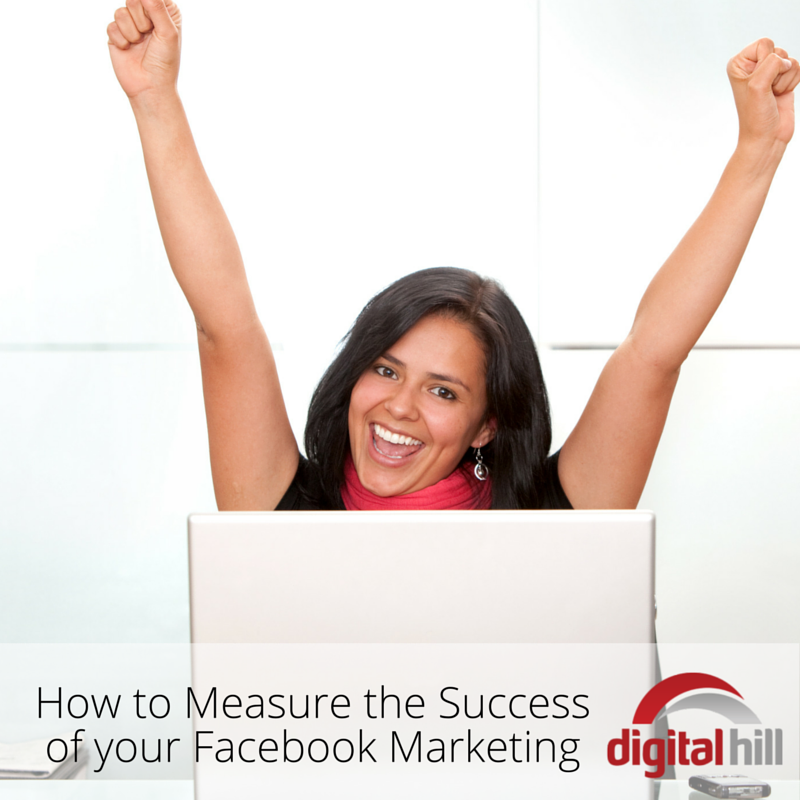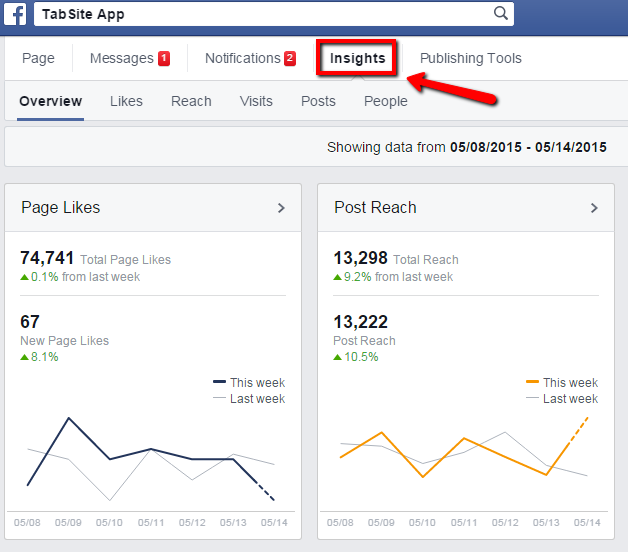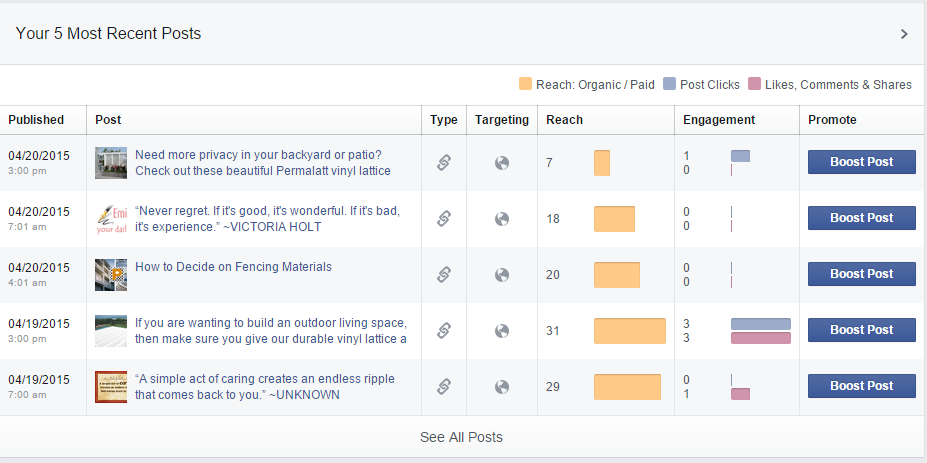Metrics to Measure the Success of Your Facebook Marketing
 Marketing on Facebook seems to be the craze for getting a businesses message out on their products and service.
Marketing on Facebook seems to be the craze for getting a businesses message out on their products and service.
However, measuring the effectiveness is fuzzy when it comes to finding out whether a businesses efforts are successful and getting feedback on what tweaks and adjustments are needed.
The real question is, “What kind of metrics can a business measure on Facebook?” They may get likes on their Facebook page but is that a true measure of success?
Likes have some benefits and valuable insight but they are just a single metric in a sea of many more stats that should be analyzed.
Likes are the Bare Minimum
The value of a “like” on Facebook does not have the same value as it did in Facebook’s infancy. The act of “liking” has really become commoditized.
It is a way of showing increased interest by Facebook users. However, there are better ways that companies can use to precisely determine the interest in their page and eventually their website.
Management is a stickler for receiving great marketing results for the money they spent (ROI). The people at the top, often don’t grasp this social media phenomenon, and it is up to the people who know this stuff to convince them otherwise.
There’s an assortment of metrics to determine interest, all of which can be viewed in the Facebook Insights Section.
Metrics to Monitor and Reasons They are Used
Likes
Facebook users who’ve found a business’s Facebook page and “Like” the page, agree to receive the company’s status updates and posts on their news feed.
A company would like a fan to see all they have to offer, Facebook uses an algorithm that monitors a user’s likes and interactions and will post what they think a user will respond too.
A company can get more interactions on their posts by boosting their post using Facebook Advertising. Remember, the interest in the page will grow over the years and it is a matter of catching their interest.
Reach
Often businesses worry whether a user may or may not see their posts. Reach is an important metric. Reach stats can be telling. It’s important to see the shares a post has. If it does, similar posts should be created.
More shares mean more reach. Your audience will share with others beyond your initial audience.
It’s important to track what posts do better than others. Do link posts get more response than image posts? What time of day does the post have the most engagement?
This metric will give some great insights on how one shares and what one shares. Do what works and stop what does not work.
Engagement
Likes are more or less a passive way of people letting a company know that hey I liked them. However, engagement is more active and brings more value to the brand.
Engagement is a way of showing the company that, hey, this is a site I want to contribute to because I feel strongly about the product, service or insight the company gives.
This metric is powerful because it tracks click-throughs to the original site. In a nutshell, be an authority on a subject and people will show interest. Ultimately, when people trust and engage, they will click through to a company’s site.
Tracking Recent and Past Posts
Companies already know the importance of using website analytics like Google Analytics to track a site’s performance and growth. This is also true when it comes to Facebook posts, past and present.
Having the ability to determine which post draws a large audience allows the business owner to create similar campaigns that can draw just as much attention.
The Ability to Watch Competitor’s Pages
Facebook has a great tool that allows Facebook Administrators to follow and track the engagement of other Facebook Pages similar to their own.
This is very useful especially if the other site is has a lot more engagement. The page owner can go to that competitor’s page and see what the they’re using for page design, interactive tabs and relevant content posted to their page.
Duplicating the competitor’s strategy or a hybrid of their strategy could pay off. This pretty much sums up how to measure Facebook success.
Remember, concentrating on building FB page likes alone may hamper a company’s business if they do not start digging deeper into other metrics.
Tracking and reevaluating your approach must be done consistently to make sure there are no opportunities lost. The approach should never be “set it and forget it.”

